Swiss papers watch the wall come down
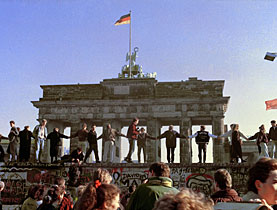
History was written on November 9, 1989: the Berlin Wall was opened and tens of thousands of East Germans flooded into the western sector of their divided city.
In retrospect the collapse of the Wall is seen as the culmination of a process that had been going on throughout the summer of 1989, which took the countries of eastern Europe out of the Soviet bloc and laid the foundations of the Europe we know today.
But a glance at the Swiss papers published at the time shows that despite the euphoria it was by no means clear how things would develop.
“It was the night of nights, such as normally occurs only once in a person’s lifetime,” wrote the Berlin correspondent of the Zurich-based Tages-Anzeiger.
“Around [West Berlin’s main shopping street] the Kurfürstendamm there were indescribable scenes of German-German fraternity. People fell into each other’s arms, most of them laughing or crying with joy, no-one could truly believe that the Wall had really fallen.”
“Throughout the night, tens – or hundreds – of thousands of people mingled together in a state of euphoria, celebrating the opening of the border between the two Germanys, 40 years after the creation of the two rival states,” said the Journal de Genève.
The shadow of reunification
But behind the joy, was deep concern about what would happen next. The great fear was the reunification of Germany – something nobody seemed to want.
In an editorial published on November 10, but evidently written before the opening of the Wall, the Journal de Genève believed that the “socialist heritage” of the East German state “will probably not be completely rejected” while predicting close economic cooperation with West Germany.
“The other solution, a definitive handover of the second Germany [i.e. the East] to the first… would be seen unanimously in both East and West as an embarrassing outcome.”
The Neue Zürcher Zeitung agreed. It pointed out in an editorial on November 11 that East Germany’s disastrous economic situation made the help of West Germany essential. But this was fraught with danger if the Bonn government found itself bridging a gap between the western and eastern blocs.
“It is hard to think that this ’emergency symbiosis’ would not slide the two German states into mutual commitments and dependencies, which would almost inevitably create mistrust in Moscow and in a number of western capitals,” it said.
Free elections
All the Swiss papers reported on the dramatic efforts of the East German leadership to rise to the challenge of the popular movement for change and democracy – what the Tribune de Genève called the “cascade of decisions in the spirit of perestroika” .
Hardliners were thrown out of the influential positions and replaced by reformers, but perhaps even more dramatically, the ruling Socialist Unity Party (SED) announced that it was willing to hold free elections, as the West German government had demanded.
The Neue Zürcher Zeitung said that Moscow, unable to provide economic aid itself, was willing to accept such elections “where a ‘zero per cent result’ for the SED cannot be ruled out”, as long as East German membership of the Warsaw Pact was not called into question.
If things went wrong in East Germany, this could undermine the reform processes in Poland, Hungary and even the Soviet Union, the paper said.
Uncertainty reigned. The Tages-Anzeiger reported on November 9 – before the wall was breached – that rumours were circulating of a possible coup being planned by SED hardliners if the party lost control of the reform process and the country left the eastern bloc. It was even said that Soviet leader Mikhail Gorbachev had given the green light for force to be used to put down a popular uprising.
Life goes on
Meanwhile, elsewhere in Eastern Europe the Bulgarian leader Todor Zhivkov stepped down as party leader and head of state.
A major story competing for headline and editorial space was the resignation of top Chinese politician Deng Xiaoping from his last official post.
The first Palestinian intifada, or uprising, was in full swing, and leftwing ruled Nicaragua was preparing for multi-party elections.
And Switzerland, with its long history of democracy, was looking forward to a nationwide vote at the end of the month. The subjects: the raising of speed limits and the abolition of the army. Both were rejected.
Julia Slater, swissinfo.ch
The Berlin Wall was erected by East Germany (the German Democratic Republic, GDR) in 1961 and completely encircled West Berlin.
In the summer of 1989 Hungary decided to open its borders to the west. Thousands of East Germans went to Hungary to use this chance to move to West Germany.
On November 9, after several weeks of popular protest, the GDR authorities announced that travel restrictions for its citizens were to be lifted.
East Berliners flocked to the wall in huge numbers, and guards, who had not received clear instructions, allowed them to pass.
The first free elections were held in the GDR on March 18, 1990.
Subsequent negotiations between the GDR and West Germany culminated in a Unification Treaty.
Unification took place on October 3, 1990.
Much of the wall itself was chipped away by the public and souvenir hunters; industrial equipment was later used to remove most of the rest of it.


In compliance with the JTI standards
More: SWI swissinfo.ch certified by the Journalism Trust Initiative

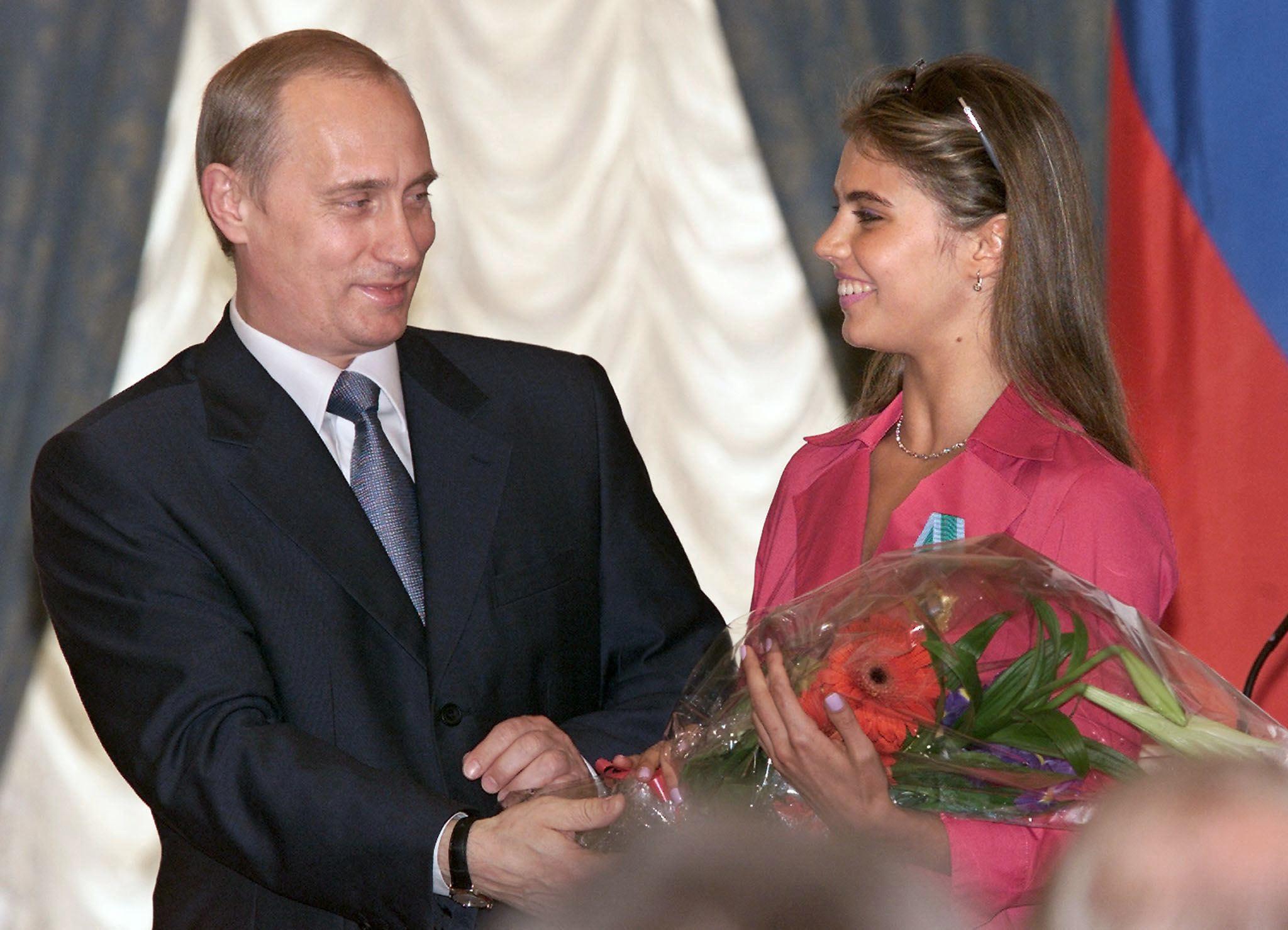
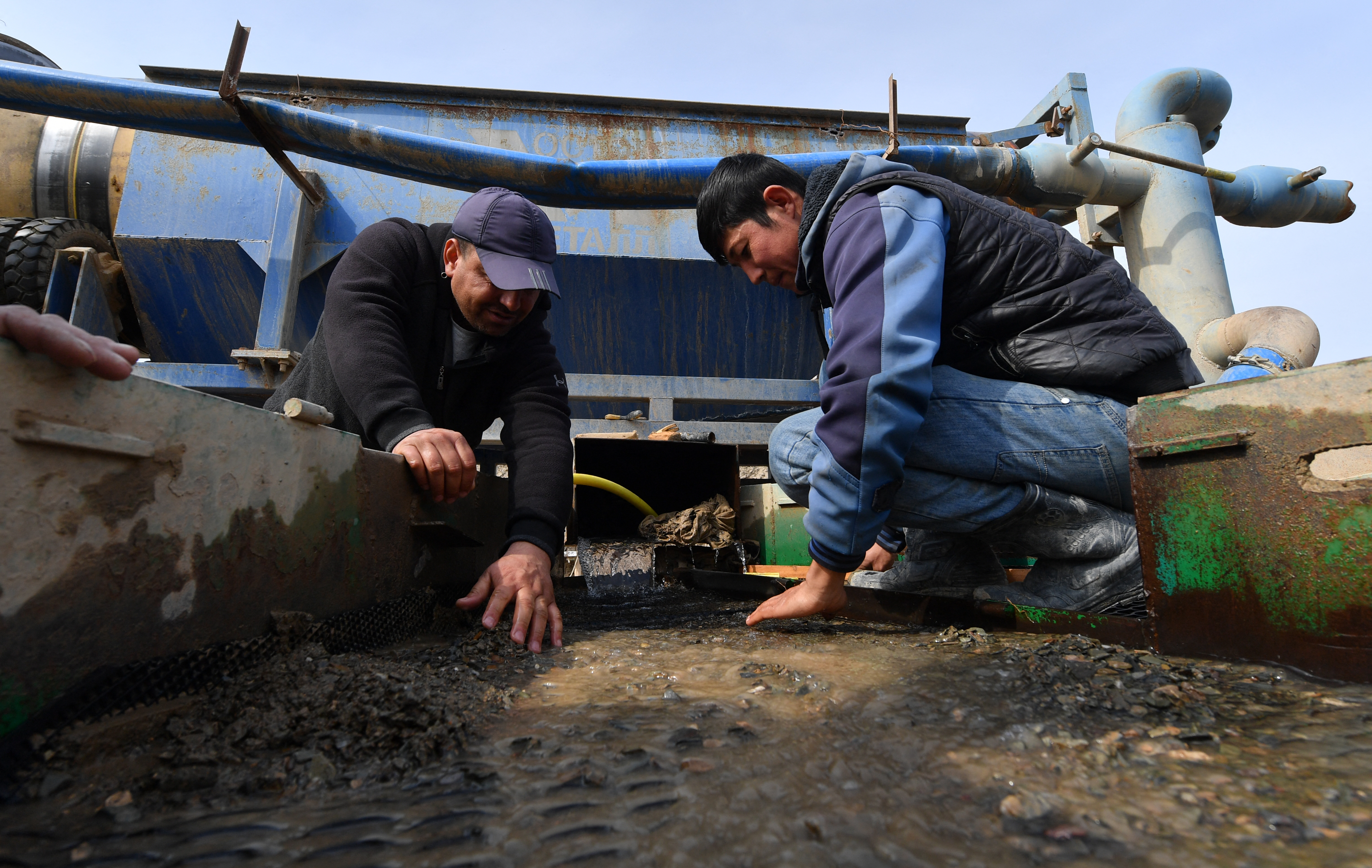





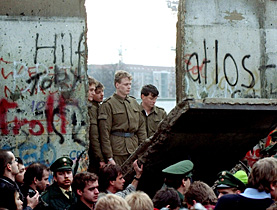
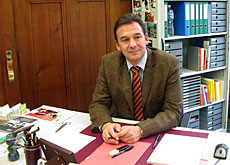

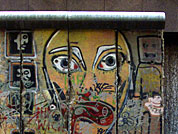

You can find an overview of ongoing debates with our journalists here . Please join us!
If you want to start a conversation about a topic raised in this article or want to report factual errors, email us at english@swissinfo.ch.